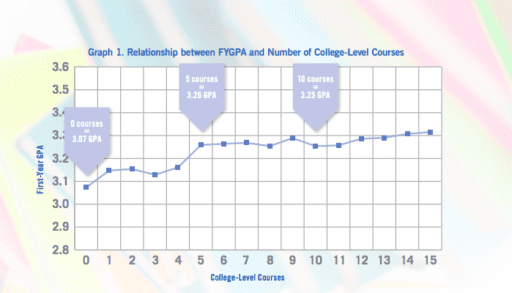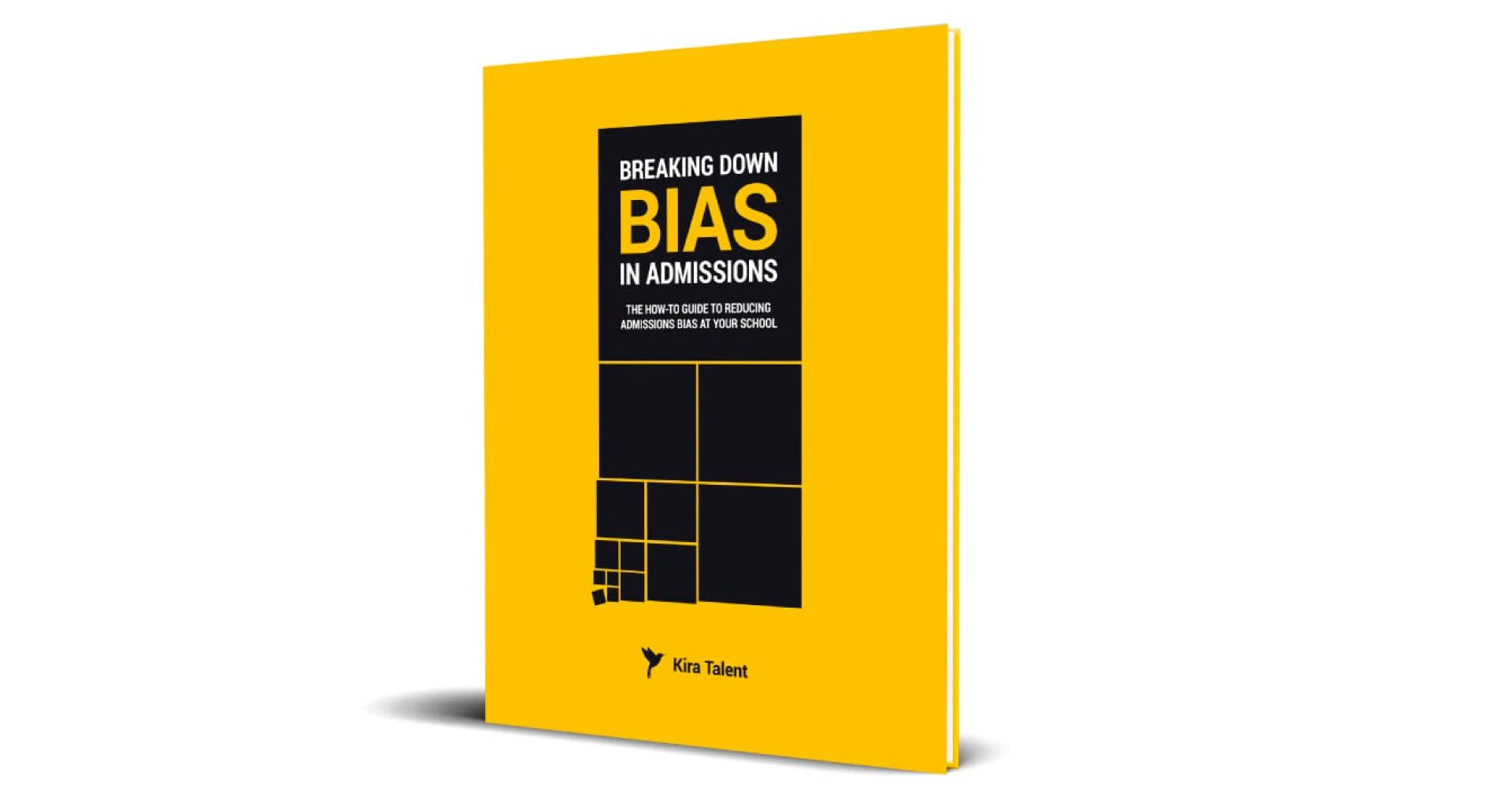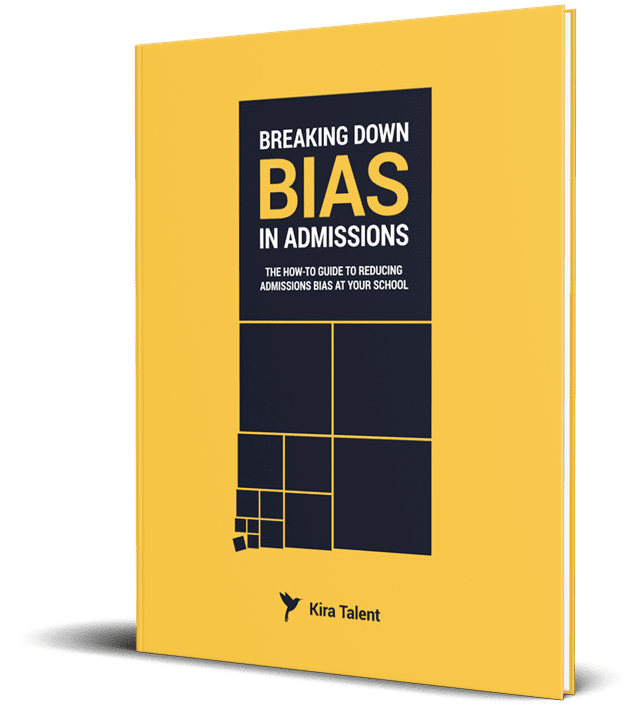Mental health and higher education are being talked about in conjunction now, more than ever. The media, students, and academic departments are all having discussions about emotional well-being in schools – but what about admissions?
The admissions process is one of the first and most important steps in a student's higher ed experience. Along the way, students are bound to experience bursts of excitement but they also face the possibility of stressful decisions, painful rejection, and overwhelming pressure.
With a sharp rise in distress caused by the anxiety of “getting in”, it's time to address this issue earlier on. It's time to apply a new way of thinking to admissions.
Getting in: Understanding the Pressures Tied to the Admissions Process.
It starts early. For most people, “what do you want to be when you grow up?” is a question asked at a young age.
Naturally, it intensifies once high school rolls around, and by senior year – everyone expects a decision, a plan, and a clear path forward. With all of the pressure, it's no wonder that stress begins to weigh down on students applying to college and university programs.
That sense of stress often stems from achievement pressure, essentially: Am I doing enough to stand out amongst the competition? As one student described it in a NYT Letter to the Editor,
"The college admissions process was an emotional roller coaster. Going through the process of compiling my accomplishments opened up insecurities ... Seeing that people with higher qualifications did not get into certain schools stirred up doubts such as, 'What chance do I have if they couldn’t even get in?'"
Surely that question looming around in the minds of students is enough to cause anxiety about the admissions process, and it only escalates for these three reasons:
Grades
One of the most notable ways of standing out to admissions teams is by taking on a challenging course load and generating an impressive GPA. As you might expect, this creates heavy pressure to push oneself and achieve high grades.
Scott White, an experienced college counselor in New Jersey, wrote in a short essay that expecting students to take demanding schedules can be enough to send many into depression, despair, and hopelessness.
But heavy course loads aren't the only culprit in creating demanding schedules.
Extracurriculars
With high GPAs no longer promising admission for many competitive programs, students often feel the need to spruce up their applications with activities. With students’ free time spread thinly across a spread of extracurriculars, the result is extremely limited time for their personal times.
One of the most unsettling realities of the whole college admissions game is that it's not uncommon for students to get involved in activities they're not truly interested in, just because they look good on applications.
Clearly, this isn't a good thing for anyone’s personal development or mental health.
The Process Itself
In an ideal world, the stress would stop there; however admissions tests, essays, and interviews often have to be conquered before getting that long-desired offer of admission.
The high-stakes tests only add more pressure for students to prepare and score high, and the essays can weigh down on those who don’t feel they have any outstanding accomplishments to share. For students applying to multiple schools, that feeling only intensifies as the number of required essays increases.
Depending on the program, the next step may be to excel during an interview.
For many of us who've been in this position, we know that these interviews are stressful. They put you on the spot and challenge you. They push comfort levels and cause sweaty palms. For some people, especially those with introverted personalities, this can cause mild-to-severe discomfort. For others, it may trigger anxiety.
Whether it’s isolated to this particular experience or a diagnosed disorder amplified by the interview, it's an unpleasant emotion that no one wants to experience.
4 Ways to Help Your Applicants Feel More at Ease
1. Encourage future applicants to take a manageable course load.
The University of North Carolina at Chapel Hill recommends taking up to five college-level courses in high school. While some prospects may choose to take more, UNC says they won't receive higher consideration than those who don’t.
This decision came after a study discovered that taking up to five college-level courses led to better academic performance in college than taking six or more college-level courses, in which the gains in first-year GPA were marginal or even negative.

Source: How Much is Enough? Rethinking the Role of High School Courses in College Admission
2. When it comes to extracurriculars, advocate for quality over quantity.
Encourage students to get involved in a few activities they actually enjoy, rather than numerous activities in hope of making their application stand out. Following real passions, rather than unmeaningful activities, is a great way to grow and let one's character shine.
In 2016 Harvard Graduate School of Education’s Making Caring Common Project put together an extensive report on “rethinking the college admissions process” to shift from a focus on authentic and meaningful contributions to others and society.
3. Reduce the pressure associated with admissions tests.
Standardized admissions tests have been criticized as being “imprecise estimates of how students might perform in specific educational contexts”. Internal data from Hampshire College supports this claim, showing no correlation between success on standardized tests and actual success in the classroom. With that in mind, consider making them optional to eliminate unnecessary stress during high school.
When using test scores in admissions decisions consider taking this advice from Turning the Tide to help ease applicants’ test anxiety:
- Be honest with applicants about the weight of these tests in the admissions process. This will help them tremendously while preparing.
- Deter students from taking the tests more than twice. Doing so will only add more stress and is unlikely to significantly improve their score anyways.
4. Let applicants showcase who they are in ways they're comfortable with.
Innovations to the admissions process are always underway and we believe many of them can help applicants feel at ease. Consider incorporating these two creative methods to do just that:
Timed video assessment
Allow applicants to feel more comfortable by giving them the opportunity to do their interview over video. Timed video assessments, also known as video essays, are a hit with applicants compared to traditional essays.
Videos can be recorded in any setting the applicant prefers. This is far more relaxing than interviews in an unfamiliar room on campus. They also reduce stress related to prepping logistically for in-person interviews.
Portfolios
While essays are commonly used to learn more about applicants, portfolios are becoming a popular alternative. Portfolios let applicants present their potential in a more creative and robust way than other assessment tools.
At the end of the day, the admissions process can be both an exciting and mentally draining experience. Being put under pressure can evoke a range of emotions. But we now know that steps can be taken to minimize those undesirable feelings as much as possible. So why not try?
We all want students to succeed and the best way to ensure that is by promoting positive mental health early, starting with admissions.



